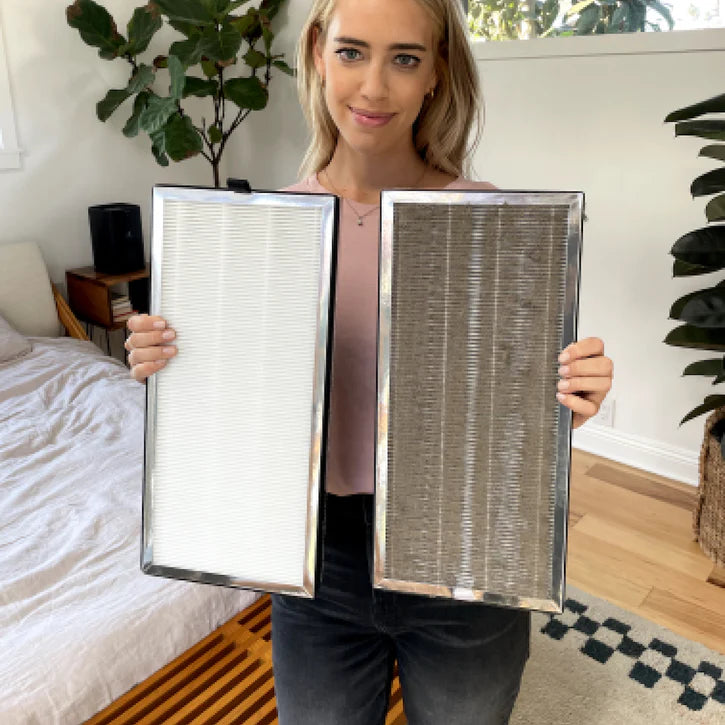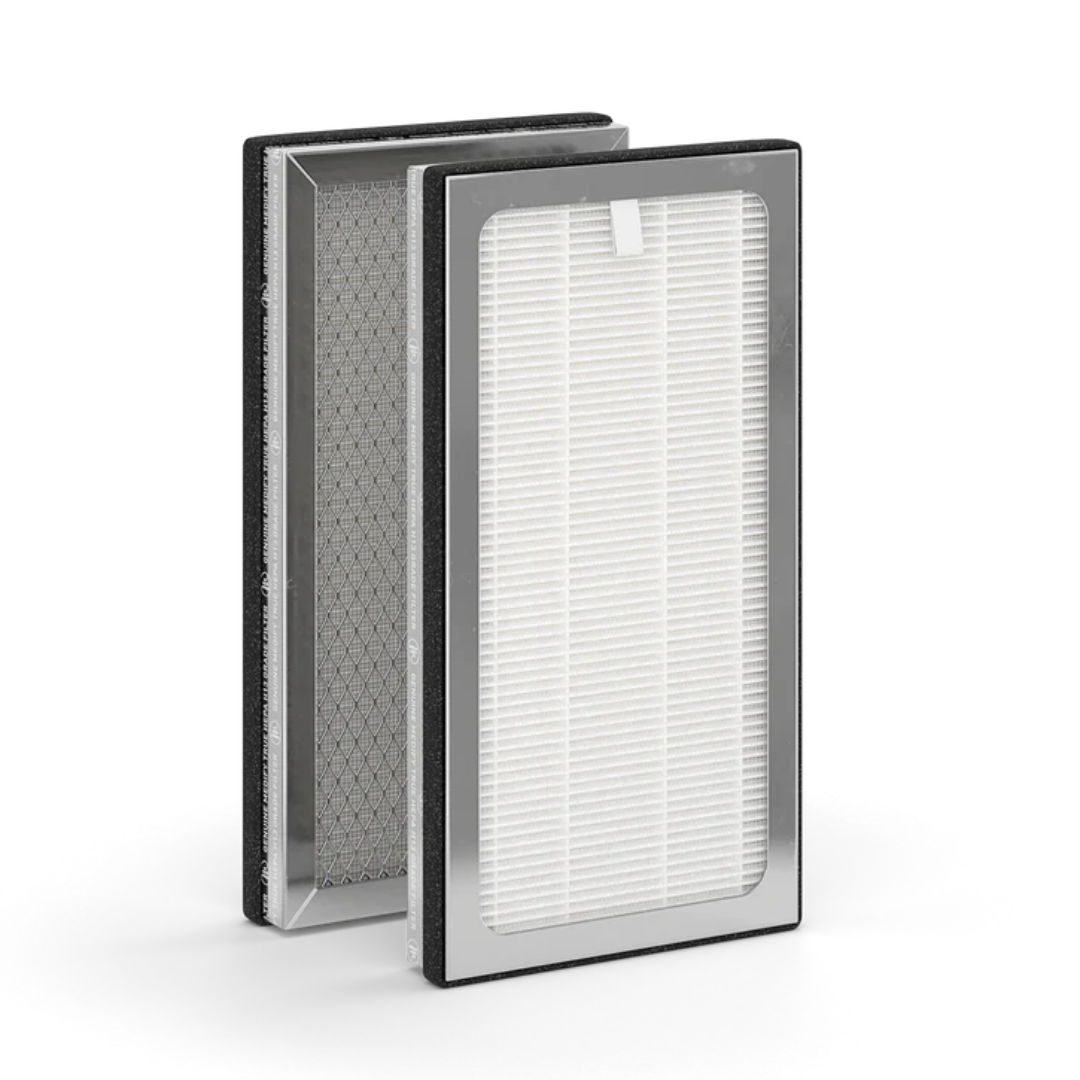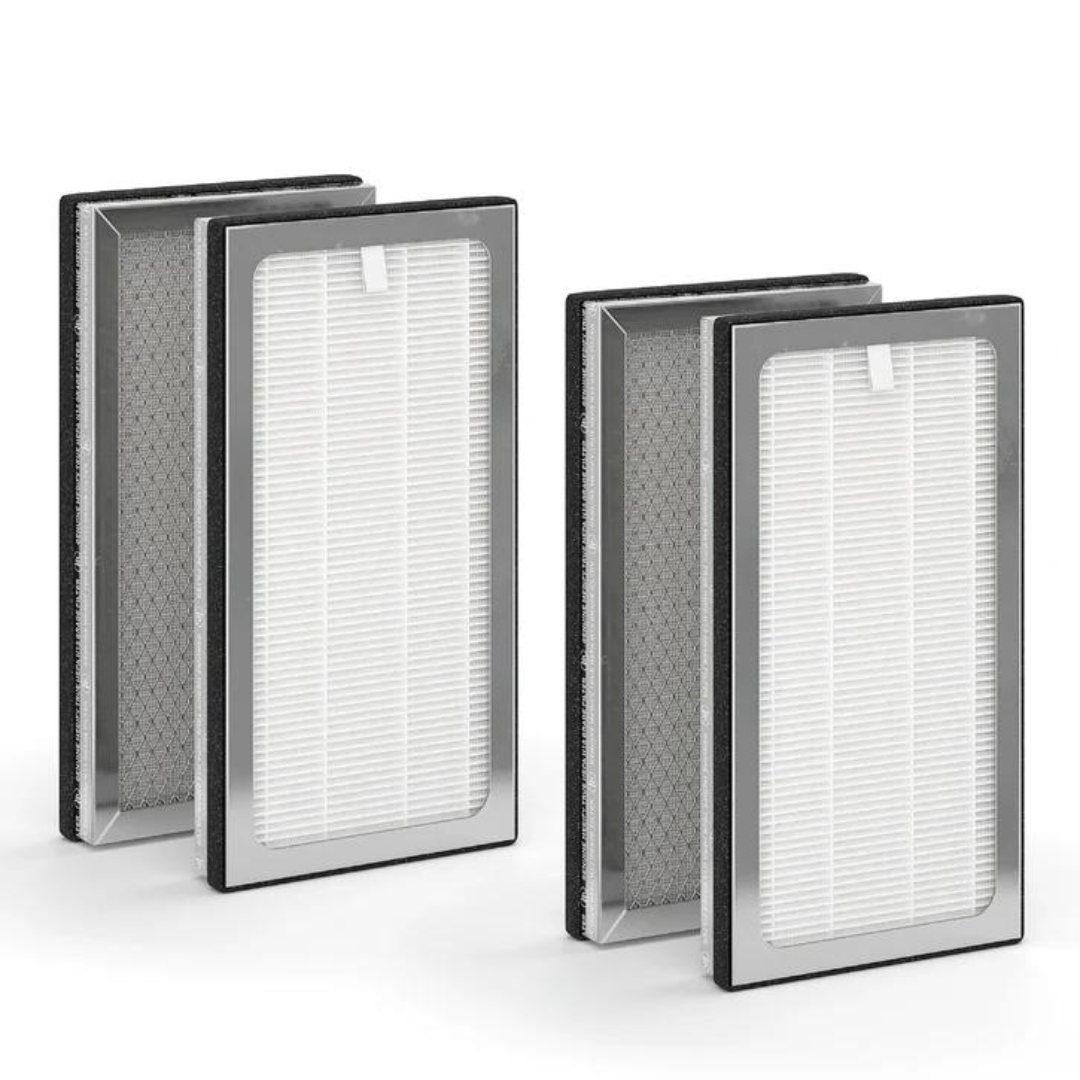You’ve probably heard the term ‘HEPA filter’ and know it refers to the high standards of filtration in devices like home air purifiers. However, the specifics of how it works might be less clear.
Sotiris Vardoulakis, Professor of Global Environmental Health at The Australian National University (ANU) National Centre for Epidemiology and Population Health, and a leading expert in air quality and pollution, emphasises the importance of HEPA filters in supporting health. “It is important to breathe clean air. HEPA filters can capture 99.95% of particles, including bacteria and potentially some viruses. Evidence shows that appropriately used HEPA filters can improve air quality within a building.”
What does HEPA stand for?
HEPA stands for "High Efficiency Particulate Air," denoting the stringent quality and efficiency standards of filtration systems. When a filter earns the HEPA certification, it signifies its capability to capture 99.97% of particles as small as 0.3 microns, as tested by the IEST. Similarly, the International Organization for Standardization (ISO) defines a HEPA air filter as capable of capturing 99.95% of MPPS particles, which are the most challenging to capture.
Medify Air's range of HEPA filters in their purifiers successfully passes both of these rigorous tests. These filters effectively capture particles such as allergens, dust mites, bacteria, particle pollutants, and pollen—common culprits that affect the health standards of indoor environments. A home air purifier lacking HEPA filter standards might be less efficient in capturing and removing potentially harmful particulate matter from indoor spaces. Opting for a HEPA air purifier can mitigate allergen triggers and enhance safety during activities like sleeping.
How does a HEPA filter work?
HEPA air filters are engineered with intricate layers to effectively capture particles of microscopic size. Typically constructed from materials like PTFE or glass-fibre, each layer is arranged in randomly arranged sheets, creating a mat-like structure. The design of HEPA filters enables them to trap particles in three different ways:
1. Larger particles: These particles are captured through impact. When they come into contact with the filter, they hit and adhere to a net-like formation of filter fibers.
2. Smaller particles: HEPA filters intercept smaller particles as they traverse through the air. These particles become ensnared on the filter fibers, effectively removing them from the air stream.
3. Smooth particles: Smooth particles pose a challenge as they move through air flow in a more random manner. HEPA air filters are specifically designed to address this by causing smooth particles to collide with filter fibers as they move erratically with the air flow, ultimately capturing them.
Choosing a HEPA air purifier
Each Medify Air Air Purifier filter meets the stringent HEPA standard, ensuring high efficiency in particle capture.
HEPA Filter Grade: Not all HEPA filters are created equal. HEPA grades indicate their efficiency in capturing particles; a higher grade means greater efficiency. This is crucial for home air purifiers, as the best performance balances filter efficacy with flow rate (the filter's ability to clean air versus the rate at which it processes air). All Medify Air Purifiers achieve an H13 grade (according to ISO standards), which is the ideal grade for removing particle pollutants while maintaining a powerful and consistent airflow throughout the room.
Additional Forms of Filtration: Medify Air HEPA air purifiers do more than just HEPA filtration to protect and purify indoor spaces. Additional filtration includes:
- Activated Carbon Filter: Particles like bacteria and viruses aren't the only pollutants in the home. Gas pollutants such as NO2 and VOCs (Volatile Organic Compounds), which are produced by activities like cooking and cleaning, and can also enter from outside through open windows and doors. Each Dyson home air purifier is equipped with an activated carbon filter, which effectively captures and absorbs many gas pollutants found in the air.
Shop our HEPA H13 Air Purifiers



